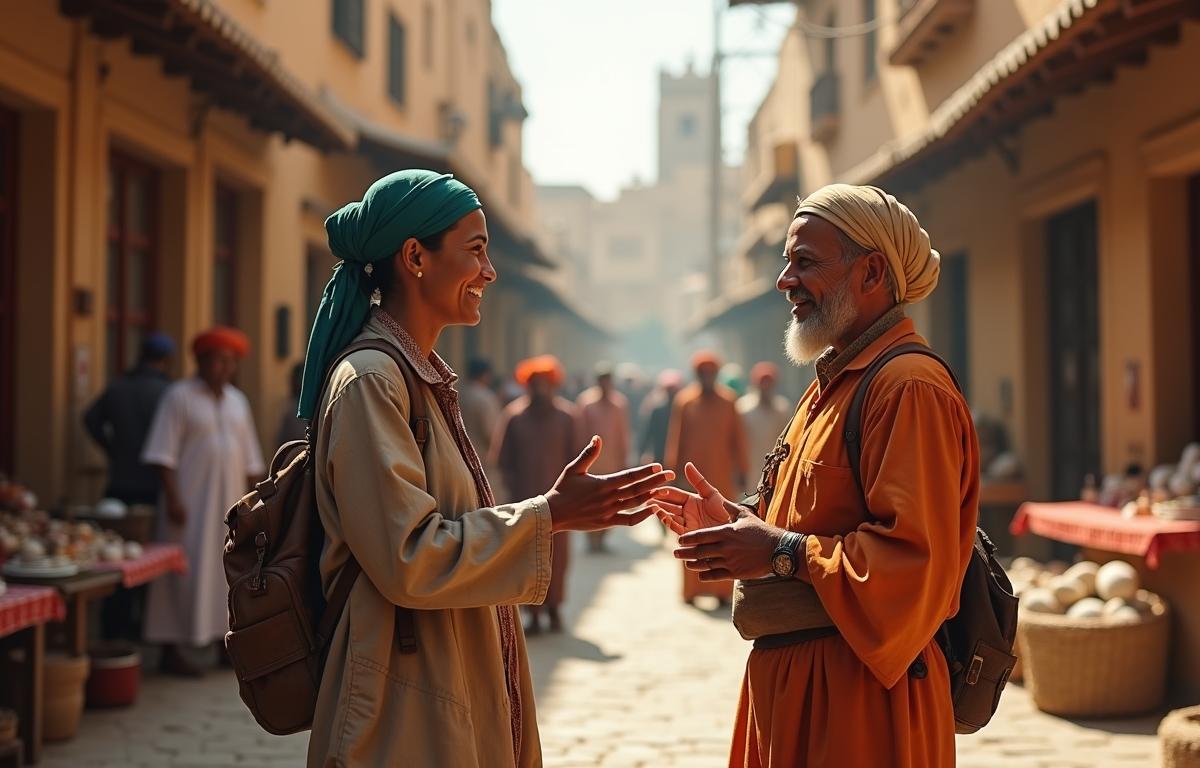Building meaningful connections abroad involves understanding and respecting various cultural etiquettes. When you visit a new place, it’s not just about seeing famous sites or tasting local food true immersion involves learning about people’s values, beliefs, and social norms. Traveling can be one of life’s greatest teachers, but only when approached with openness and respect. By adapting your behavior to fit into unfamiliar contexts, you become a more thoughtful guest and a better representative of your home country.
Travelers who prioritize cultural sensitivity often find that doors open for them more willingly. Communities feel valued when visitors show genuine interest in their traditions and customs. That sense of appreciation goes a long way in creating cross-cultural friendships. Equally important, this mindset paves the way for future collaborations and fosters a global citizenship spirit that transcends geographical boundaries.
Contents
- 1 Importance of Travel Etiquette
- 2 Cultural Sensitivity: A Key to Inclusivity
- 3 Embracing Local Customs: Traditions and Values
- 4 Responsible Travel: A Path to Global Citizenship
- 5 Enhancing Your Cultural Awareness on the Road
- 6 Fostering Cross-Cultural Respect in Daily Interactions
- 7 Sustaining Lessons Learned Beyond the Trip
Importance of Travel Etiquette
Travel etiquette is not limited to politeness, though that’s a big part of it. It also includes adapting to local cultural norms, such as greeting styles, appropriate dress, and polite body language. Observing these nuances can help you avoid unintentional offenses and establish a respectful tourism practice that honors the culture you’re exploring.
Engaging in cultural awareness builds trust and camaraderie, especially when you recognize local customs instead of imposing your own. Many communities have protocols in different cultures that guide how you interact in marketplaces, religious sites, or even during simple social gatherings. When you acknowledge these differences, you demonstrate cultural humility and increase the chances of genuine connection.
Cultural Sensitivity: A Key to Inclusivity
Cultural sensitivity means adjusting your lens to appreciate the traditions and values that define a region. It’s about seeing the world through the eyes of people who live differently from you. With this approach, you practice diversity appreciation and share in a cultural exchange that enriches both parties.
One way to nurture cultural sensitivity is by learning basic phrases in the local language or discovering the significance behind common rituals. For instance, understanding why certain foods are served during festivals can open up conversations around cultural heritage. These small gestures help you gain intercultural competence while also showcasing your willingness to learn.
The Role of Respectful Tourism
Respectful tourism is grounded in seeking meaningful connections with local communities rather than simply passing through. You go beyond typical sightseeing and instead focus on building cross-cultural understanding. Observing local dress codes, asking permission before taking photos, and engaging in heartfelt conversations demonstrate that you see individuals as more than cultural backdrops for your travel photos.
Travel etiquette also extends to how you behave in sacred or solemn places. Many cultures have spiritual sites that hold deep historical and religious significance. Staying quiet, removing your shoes, or following other customs exemplify global etiquette and a true commitment to respecting traditions.
Embracing Local Customs: Traditions and Values
Every region has its own identity shaped by generations of traditions and cultural norms. Stepping into these local contexts involves more than passive observation; it requires proactive engagement. Whether you’re attending a festival, partaking in a community gathering, or enjoying a homestay, a bit of research can save you from uncomfortable blunders.
Researching traditions and values before you arrive transforms you from a mere visitor into someone ready for cultural immersion. You’ll find it easier to talk about community histories, appreciate heritage preservation efforts, and even participate in local ceremonies when invited. Communities often welcome outsiders who show genuine interest, so let your curiosity guide you.
Engaging with Cultural Exchange
Cultural exchange is about reciprocal learning. Rather than only absorbing information, share insights about your lifestyle, too. This type of multicultural understanding fosters a sense of solidarity, especially when you show reciprocal respect for their viewpoints. Ask questions about local holidays, gestures, or art forms; in return, you can talk about your community’s customs back home.
When both sides feel heard, the experience transforms into something deeper than a typical tourist getaway. Emotional bonds form, and you gain broader awareness of cultural differences. By actively participating in these exchanges, you take part in a meaningful global citizenship that values every individual’s voice.
Responsible Travel: A Path to Global Citizenship
Responsible travel goes hand in hand with respecting cultures abroad. It’s about minimizing disruption to local lifestyles and preserving the environment and cultural landmarks. You can do this through simple routines such as carrying reusable items, following posted rules around wildlife, and supporting local businesses instead of international chains.
This approach strengthens community engagement because local people see that you’re invested in their well-being. Buying handmade souvenirs or attending traditional workshops also contributes to local economies while promoting cultural appreciation. This sense of mindful travel lays the foundation for a sustainable tourism model that benefits everyone.
Mindful Intercultural Communication
Intercultural communication is a skill that grows with intentional travel. Simple gestures like a smile, a polite greeting, or actively listening when someone speaks can transcend language barriers. It’s also important to be aware of nonverbal cues, which can differ greatly between world cultures. In some places, direct eye contact is a signal of honesty, while in others, it might be viewed as disrespectful.
Practicing mindful communication means you learn to read a room and adjust accordingly. If you aren’t sure about certain gestures, asking politely can clarify misunderstandings. Most people appreciate the effort you put into embracing diversity and bridging cultural gaps.
Enhancing Your Cultural Awareness on the Road
Cultural awareness evolves each time you journey outside your comfort zone. Think of it as a continuous process: the more you travel, the more you learn about cultural adaptation. Seek out opportunities for immersive travel that push you to engage with locals, try new foods, and practice local languages or at least attempt them.
Sometimes, you’ll encounter social scenarios that surprise you. In these moments, choose curiosity over judgment. Ask questions like, “What’s the significance of this tradition?” or “How do locals feel about this practice?” This approach encourages open dialogue and deepens your cross-cultural communication skills.
Community Engagement and Heritage Preservation
Community engagement can take many forms, from volunteering at a local school to supporting handicraft cooperatives that uphold cultural heritage. Get involved by attending events that celebrate ethnic diversity, be it a traditional dance performance, an artisan fair, or a small religious ceremony. These intimate experiences reveal deeper layers of a place’s identity and help fund heritage preservation efforts.
When you take part in such activities, you’re not just a bystander. You become an active participant who directly contributes to the community’s longevity. This role fosters cultural respect practices that resonate long after you’ve left, encouraging future travelers to be equally considerate.
Fostering Cross-Cultural Respect in Daily Interactions
Small, day-to-day interactions often say more about your respect for cultural diversity than grand gestures. It might be the way you line up in a queue, the volume at which you speak in public, or how you navigate interpersonal space. Observing local norms in these routine aspects signals your willingness to adapt to their social fabric.
Even small talk can reveal cultural differences. In one country, asking someone about their family is warm and welcoming; in another, it might be too personal. A flexible approach to social norms allows you to blend in seamlessly. Each moment becomes an invitation to refine your intercultural competence and grow more confident in your global etiquette arsenal.
Practical Tips for Cultural Humility
Practicing cultural humility means acknowledging what you don’t know. Apologies go a long way if you inadvertently offend someone. Most people appreciate sincerity and are quick to forgive honest mistakes. Remember that showing respect can involve adapting your sense of time, punctuality, and even how you interact with elders.
If you love photography, consider how locals feel about being photographed. In some communities, snapping a picture without permission implies you’re treating them like attractions rather than people with dignity. Always ask first, and respect a “no.” This approach reinforces that your travel mindfulness extends beyond self-interest.
Sustaining Lessons Learned Beyond the Trip
Part of the beauty of immersive travel is bringing those lessons back home. When you continue exploring cultural norms after returning, you keep those connections alive. Share what you’ve learned about cross-cultural understanding with friends, family, or social networks. You might inspire others to adopt responsible travel habits and propagate cultural diversity awareness.
Look for ways to incorporate international cultural respect into your daily life: support world cultures through global news, try cooking foreign cuisines, or attend cultural festivals in your hometown. Staying engaged with the traditions you’ve encountered ensures that your experiences abroad don’t fade. It also solidifies your role as a traveler who values every community’s heritage and extends that respect in all settings.
Moving Forward with Cultural Adaptation
Cultural adaptation is a continuous journey rather than a final destination. With each trip, you deepen your knowledge, polish your communication skills, and expand your worldview. You come to see that embracing diversity invites richer, more rewarding moments. These interactions create lasting transformations, both for yourself and the people you meet along the way.
As you plan your next adventure, think about how you can further integrate respectful tourism practices. Maybe that means focusing on heritage sites, engaging in community-led tours, or learning more about local rituals. Whatever route you take, let cultural awareness remain at the core of your travels. It will ensure that each journey is a loop of learning, sharing, and mutual respect one that continues to connect hearts across borders.




